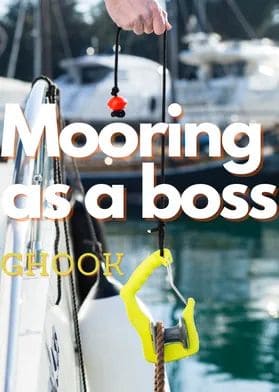Looking for a Marine Watermaker for Sale?
This page lists marine watermakers for sale that you can buy from the Nautical marketplace topRik.com
Our catalog contains the newest and best marine watermakers for yachts and sailboats, which you can safely take on a long voyage and be sure of their reliability. Each product has a review, specification and instructions.
Secure payment and delivery of goods worldwide in the shortest possible time!
Don't know which desalinator to choose? You can ask our team for help and they will answer all your questions.
Why Do You Need a Sea Watermaker
A modern system of seawater desalination by reverse osmosis on board the yacht is a guarantee of comfortable and safe autonomous navigation over long distances. Our marine watermakers for sale provide following advantages on board the yacht:
- automated seawater desalination process with a minimum of maintenance;
- high level of sea water purification from salt, pollution and microorganisms (from 97 to 99%);
- the ability to choose a route of any distance, even with a limited volume of water tanks, since you are not bound by the need to enter marinas and ports to replenish water supplies;
- cost savings in some regions where drinking water can be very expensive (many ports in the Caribbean, island regions, etc.);
- ensuring safe water supply on board, especially in those regions of the planet where water quality does not pass the necessary sanitary control, and the crew and passengers are at risk of getting pathogens or parasites along with water from untested sources;
- provision of an emergency water supply if a leak develops in the water tanks or the water there becomes unfit for consumption;
- reducing the weight of the vessel and increasing its productivity by reducing the amount of water storage or completely abandoning it.
The practice of sea travel and chartering clearly confirms that a watermaker on board a yacht is a guarantee of a comfortable and safe cruise with family, friends or passengers of commercial flights.
The Principles of a Marine Watermaker’s Operation
There are several ways to desalinate sea water - almost all of them have been tested in practice on ships of various displacements: distillation (thermal method is used), electrodialysis, reverse osmosis.
Distillation plants for desalination are bulky and energy intensive, and can be installed on large ships connected to diesel engines. Electrodialysis requires a lot of electricity, more suitable for installation on large ships or on the coast.
There is also an ion exchange method for removing salts from water, but it requires a large amount of reagents that are difficult to remove after the reaction. This water is not suitable for drinking. In addition, the cost of the reagents used is too high.
For sailing and motor yachts, as well as catamarans, the most suitable options are those based on the reverse osmosis method. Such equipment is more compact, less energy intensive and does not require long training. It is enough to be instructed by the representative of the supplier during installation, as well as carefully read the manual.
In seawater desalination by reverse osmosis, high-pressure seawater is forced through a very thin, semi-permeable membrane.
The structure of this membrane is designed to pass only pure water molecules. All other components of the permeable liquid remain on the other side of the membrane. This brine includes:
- mineral salts;
- sediment pollution;
- elements of plankton;
- biological components - viruses, bacteria and other microorganisms.
But sea water cannot exert enough pressure to force itself through the membrane. Therefore, desalination by reverse osmosis is carried out under high pressure. To do this, the reverse osmosis plant necessarily has a high-pressure pump and a valve for discharging brine into the sea.
Clean fresh water, which is suitable for drinking, is collected on one side of the membrane, and the brine with salts, organics and other contaminants is dumped overboard.
ATTENTION! For reverse osmosis desalination, clean sea water should be used which is away from harbours, ports and marinas.
For additional seawater purification, mechanical and carbon pre-filters should be installed between the intake valve and the membranes. This way, you will significantly extend the time of productive operation of the membranes without the need for maintenance.
Marine Watermakers: Pros and Cons
Like any equipment that is designed to make life easier for a person in difficult conditions, marine desalinators have both advantages and disadvantages. Experienced travelers are convinced that they have much more advantages, though. The cons are usually high cost, as well as the need for monitoring and maintenance.
In defense of the first point, only one thing can be said: the cost of marine watermakers for sale increases in direct proportion to their productivity.
As for the extra hassle that comes with the desalinator, it's all in the hands of the yacht's skipper. There are special control panels that can be installed in different parts of the boat, allowing to remotely monitor the parameters and control the operation of the desalination equipment.
It is possible with the help of additional filters to provide preliminary cleaning of sea water, which will significantly extend the life of the membranes without treatment or replacement.
Now compare how many advantages (versus two disadvantages) a reverse osmosis desalination system installed on a yacht provides:
- you are free to plan your sailing route;
- you are free to determine the duration of the cruise;
- you will receive clean drinking water in any region of navigation;
- you will never have to save fresh water, scrupulously distributing it for drinking, cooking, hygiene procedures, etc.;
- your family, friends and you will never pick up pathogens from water passed through a reverse osmosis desalination plant;
- you, your passengers and crew will not be left alone with only saline water overboard in an emergency.
One last thing, for those who understand, you will never have to cook spaghetti by diluting your drinking water from the tank with seawater. And saving on salt this way surely won't save the cost of maintaining the yacht.
How to Choose a Watermaker for a Yacht / Boat
Before considering to purchase one of our products, decide what you want to get out of this equipment and what you would like to avoid. Let's take a look at the main characteristics related to performance, energy consumption and design features of desalinators.
Water output l/h
This is the main parameter of desalination equipment. Of course, you can choose a more productive option if you are not financially constrained. But you can more accurately calculate the required performance of a marine watermaker specifically for your needs.
For an adult to maintain body hydration, it is mandatory to drink 1 liter of water per day. The World Health Organization warns about such norms of drinking water per person, and this cannot be neglected.
Underestimating the water needs of a ship is just as dangerous as overestimating them.
Our marketplace contains marine desalinators for sale with a capacity of 60 to 4000 liters of fresh water per hour. So the owner of almost any yacht or catamaran can choose an option for individual sailing conditions. You will be assisted in your choice by our staff, who have significant practical experience in sea navigation in various conditions.
Power consumption
It is believed that any yacht equipment connected to a power source is excessively energy intensive. The good news for you is that this figure can be reduced.
There are several power options for desalinators to choose from based on boat size and power source:
- for ships with a generator - alternating current (AC) 120/220 volts;
- for ships equipped with alternative power sources (solar panels, wind turbines, hydro generators) - direct current (DC) 12 or 24 volts;
- for belt-driven vessels, the most efficient way to run the engine and desalination plant at the same time.
The latter option is suitable for large boats, as it requires a significant amount of space in the engine compartment. Water purified in this way is stored in tanks.
To optimize the power consumption of desalination equipment, it should be selected taking into account the power sources of the yacht.
Pay attention to one more feature. Most modern manufacturers of desalinators for sale use an energy recovery system that greatly reduces the power requirement of the power source.
We have marine watermakers for sale with patented energy recovery systems that reduce power requirements by up to 80%.
Dimensions and Noise
The size and performance of desalination devices are directly proportional to the noise they produce. Therefore, choose equipment parameters as close as possible to your needs. This will not only eliminate downtime, but also reduce noise levels.
Pay attention to the manufacturer's information about the noise level. The developers of the latest generation of watermakers are taking into account the need of yachtsmen to reduce it.
The Main Components of the Watermaker
A very important point in the analysis of your next buy is the components of the desalination system. Stop your choice on a model that:
- has open access to parts of the device - mounted in an open frame, which facilitates visual control and prevention;
- made of water-resistant, non-corrosive materials - stainless steel, ceramics, high-quality polymers, food-grade plastic, etc.;
- has a lower indicator of the number of revolutions of the pump per minute - a guarantee of equipment resistance to changes in the quality of outboard water;
- is not limited in use only to patented spare parts, which will facilitate repairs;
- provides all the basic functions in the basic configuration;
- allows individual settings for operation and control.
There are mobile options for desalination plants that can be rented for a short-term voyage.
An excellent option is modular systems, the modules of which are installed in different parts of the yacht.
If you listen to our advice, it will not be difficult for you to understand which watermaker perfectly suits your needs and the parameters of your boat.
Any questions? Contact our consultants who have extensive experience in the practice of sea cruises and yachting.


